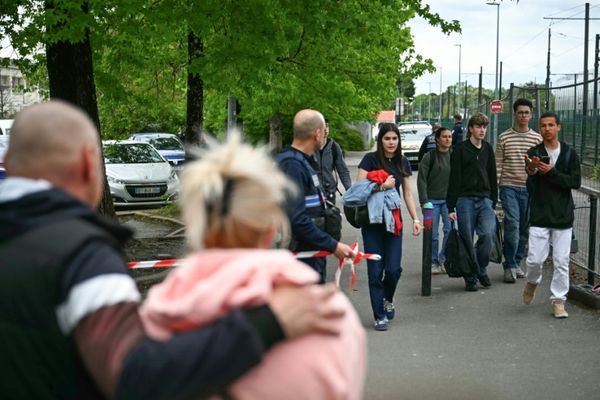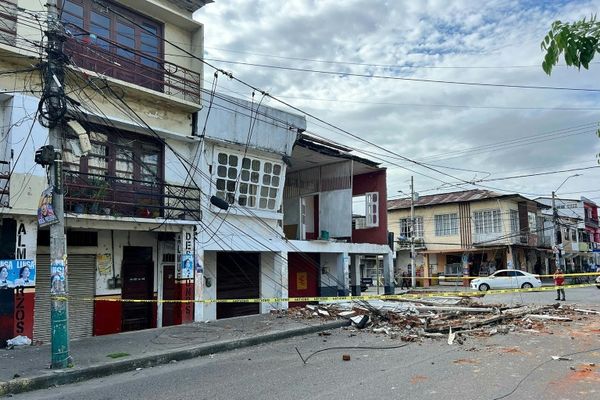While Donald Trump has reversed his policy of forcibly separating migrant children from their parents, it has been alleged immigrant children held at a centre in Texas have been forcibly administered drugs to manage their trauma.
The allegations have been made in a law suit which was filed in April by the US Centre for Human Rights And Constitutional Law, just days after the Trump administration introduced its zero-tolerance policy to separate children from parents who crossed the border illegally.
The lawsuit alleges mistreatment of children by Shiloh Treatment Center — a government contractor south of Houston that houses immigrant minors — and other detention centres.
It claims children held at the government-funded centre had been given a cocktail of drugs without their parents' consent.
Affidavits filed in April described children being held down and injected.
It is alleged in the suit they were told they would not be released or see their parents unless they took what they were told were vitamins.
'Easier to sedate than treat'
The Shiloh Treatment Centre is among several companies that receive funds from the US Government to house and supervise immigrant children deemed unaccompanied minors.
An investigation by the Center for Investigative Reporting and the Texas Tribune found nearly half of the $3.4 billion paid to those companies in the past four years went to homes with serious allegations of mistreating children.
The investigation reported that in most cases, contracts with companies continued after serious allegations were raised.
Forensic psychiatrist Dr Mark Mills was asked by the investigation to assess 420 pages of medical records and statements of the children in question, mostly aged between eight and 17.
Dr Mills was the UN expert witness for a lawsuit in 2008 which stopped the US government from forcibly administering anti-psychotic drugs to two deportees.
As a result of that lawsuit, the Immigration and Customs Enforcement agency (ICE) agreed to stop the practice.
"But I think when you have children who have been forcibly separated from their parents, who are anxious and frightened and occasionally not only traumatised but even profoundly upset and psychotic, it is not surprising that it is easier to over medicate and sedate than it is to engage and treat appropriately," Dr Mills said.
"Oftentimes the medications are being used improperly to impose control on the children rather than treating an underlying psychotic disorder."
'Experimental' use of drugs without consent
The lawsuit details how one child was prescribed 10 different medications, including the antipsychotic drugs Latuda, Geodon and Olanzapine, the Parkinson's medication Benztropine, the seizure medications Clonazepam and Divalproex, the nerve pain medication and antidepressant Duloxetine, and the cognition enhancer Guanfacine.
"It is a surprising, perhaps even shocking finding and suggests that at least at this facility, at least insofar as the records which I reviewed, treatment is not complying with the ordinary guidelines," Dr Mills said.
"Medications like Olanzapine are appropriate for people who are psychotic, but they are not appropriate generally for treating agitation or misbehaviour."
Dr Mills said consent is usually required from parents or guardians before drugs are administered to children.
"There is no evidence that any kind of effort was made to obtain that consent," he said.
He told RN Breakfast he was troubled by the "off-label" or "experimental" use of the drugs in question.
"A medication like Prazosin, which is anti-hypertensive, that medication was used to treat children with post-traumatic stress disorder," Dr Mills said.
"It's an experimental usage that requires additional consent beyond the kind of consent that a parent or a guardian would ordinarily provide."
Dr Mills said the drugs used had "well-known risks" and should be used "rarely and cautiously".
He said he had seen nothing to suggest the Shiloh Center had altered its practises.
Neither the Shiloh Treatment Center in Texas nor the US Government Office of Refugee Resettlement had responded to the report.







